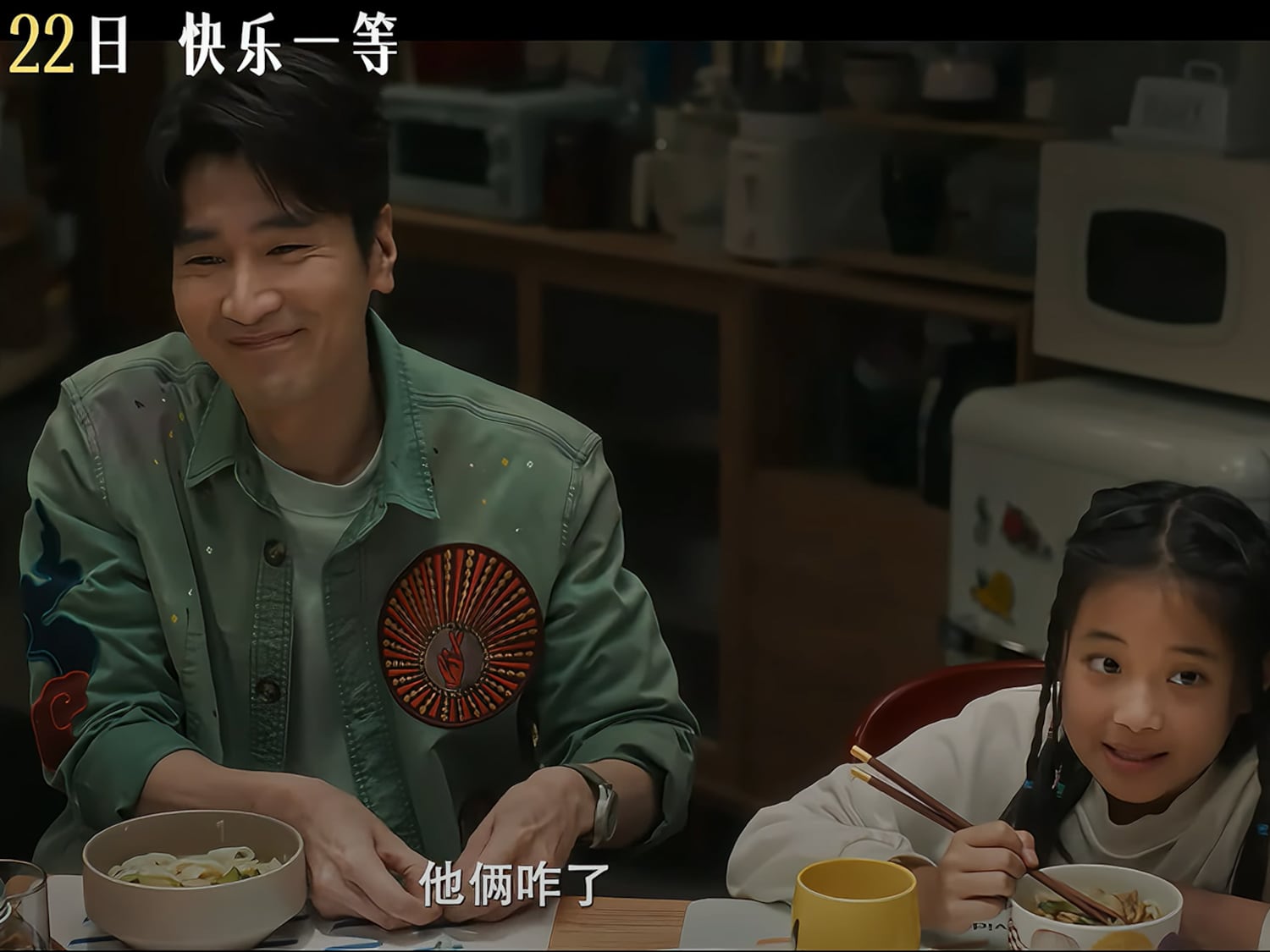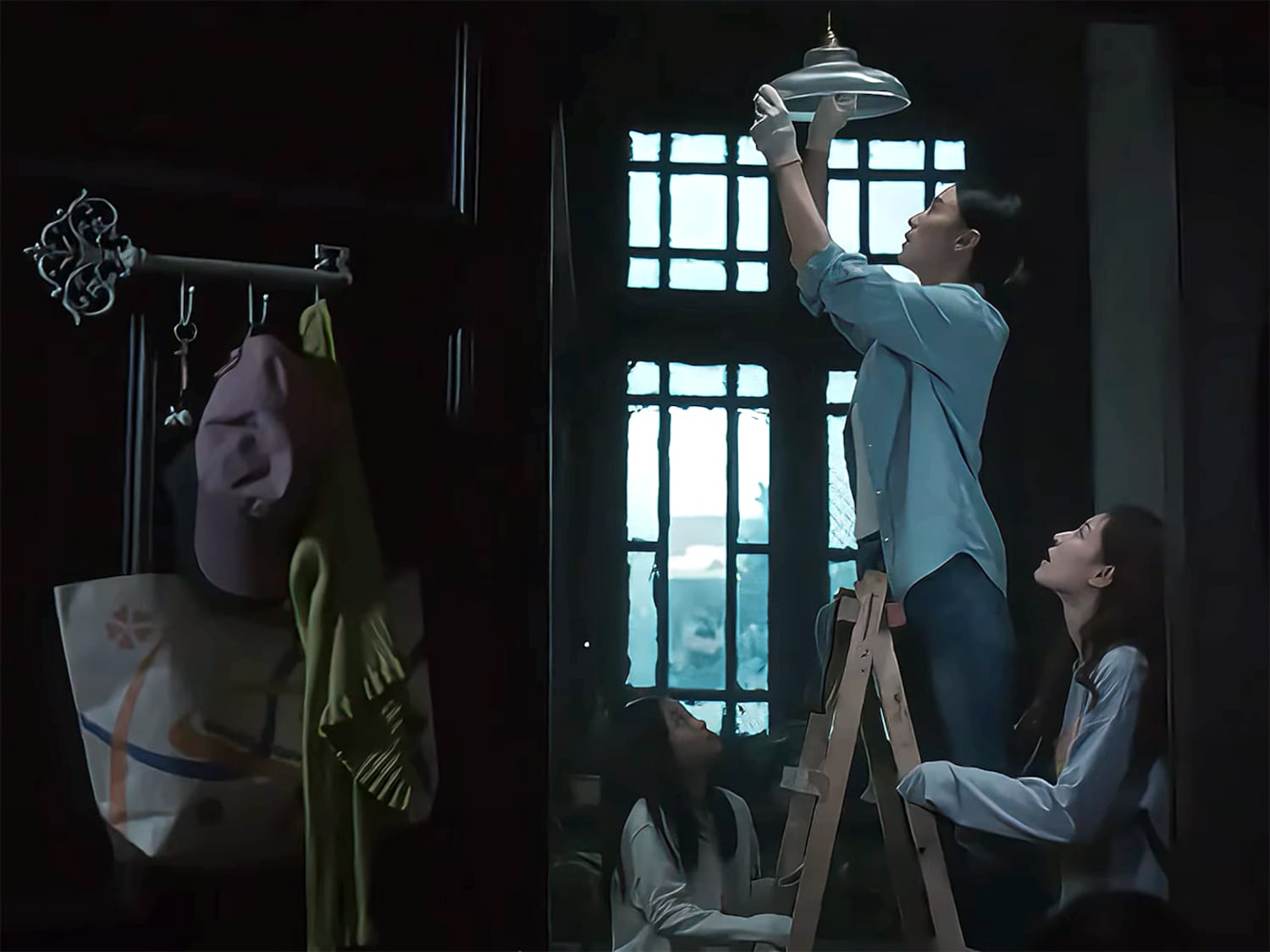A movie that has been dubbed “China’s Barbie” has turned out to be a huge box-office hit, grossing more than 680 million yuan (US$93 million) since it opened on Nov. 22 and sparking heated social media debate about gender roles and feminism.
The romantic comedy “Herstory” follows the life and loves of Shanghai single mother Wang Tiemei as she starts a new life after losing her job.
Directed by Shao Yihui, the fast-paced drama focuses on Wang’s friendship with a troubled new neighbor, taking in challenges that include dating setbacks, stalking and an abusive ex.
Described by China’s New Weekly outlet as “a healing work dedicated to urban drifters,” the movie includes a scene where two men compete for a woman’s affection by listing all of the books they’ve read by Japanese feminist writer Chizuko Ueno.

The movie comes at a time of plummeting marriage rates in China, flagging births and a rapidly aging population.
President Xi Jinping wants the country’s women to step up and embody “the traditional virtues” of marriage and raising children in a bid to “rejuvenate” the nation.
When Xi took power in 2012, China ranked 69th in the World Economic Forum’s Global Gender Gap Report, which measures policies and suggests measures to address gender inequality. By 2023, the country had fallen to 107th place.
Chinese women face major barriers to finding work in the college graduate labor market and fear getting pregnant if they do land a job out of concern their employer will fire them, a common concern despite protection on paper offered by China’s labor laws.
And the authorities have cracked down hard on women’s rights groups and #MeToo activists, detaining five feminists as they planned a campaign against sexual harassment on public transport ahead of International Women’s Day 2015 and recently jailing feminist journalist and #MeToo researcher Sophia Huang for “incitement to subvert state power.”
RELATED STORIES
Feminism in China after #MeToo
Backlash: How Victim Blaming and Gender Wars are Poisoning the Feminist Movement
Chinese court rejects feminist journalist Sophia Huang’s appeal
While “Herstory” has been largely welcomed by Chinese women on social media as a refreshing take on women’s lives, and hailed as the Chinese equivalent of Greta Gerwig’s “Barbie” about the iconic Mattel doll, there has been some political backlash against the film’s rather moderate message of female empowerment.
When some social media comments complained that one of the publicity posters for the movie only showed the male characters, others jumped in to warn against “gender confrontation,” a buzzword often used by pro-government “little pink” commentators to suggest that support for women’s rights has crossed lines laid down by the ruling Chinese Communist Party’s “public opinion management” operations.
“Congratulations on 600 million,” wrote Weibo user “A_Guide_To_Not_Growing_Up commented from the eastern province of Jiangsu on Dec. 14. “I want to see the female characters on the poster next time.”
“Don’t do this again,” @Look_up_at_the_sky_and_don’t_think added from Guangxi, while @RachelCe added: “I seem to remember that the main characters in your movie were three women,” adding a “shocked” emoji.

But @Cabbage from Jiangsu wrote: “Some people in the comment area started to create gender antagonism. Anyone in this movie can be on the poster, even the building security guard.”
@iamloooopy wrote: “Most of the laughs in this movie were provided by the male actors,” while @Elaineeeee countered: “The jokes were provided by the screenwriter, thanks.”
But others were too busy celebrating the film’s success.
“It’s important for women to be subjects, not just objects,” read one social media comment, while another said: “I laughed and cried at the same time.”
Another wrote: “May we all have the courage to pursue true freedom.”
Translated with additional reporting by Luisetta Mudie. Edited by Malcolm Foster.
This content originally appeared on Radio Free Asia and was authored by Kitty Wang for RFA Mandarin.
This post was originally published on Radio Free.